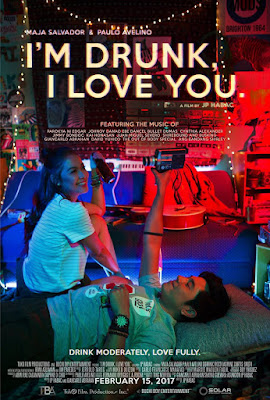BADIL (Chito Rono, 2013)
Elections in the Philippines has always taken its place in the hall of infamy, with its share of violence, celebrities turned instant politicians, and yes, the phenomena of vote-buying which is as old as time itself.
In BADIL, the gripping political thriller from seasoned filmmaker Chito S. Rono, we see the extent of people's desire to emerge victorious in the elections by way of sabotaging known supporters of the opposition, a practice known as "dynamiting" or "dynamite fishing", or in the local parlance, "badil".
Ponso (Dick Israel) is a highly-influential figure in their barrio who is known as a master manipulator and facilitator. He can steer the results of an election his way through use of money, influence, blackmail, sometimes even violence, and most importantly, the innate Filipino trait of "utang na loob" or owing favors.
On the eve of the elections in a small coastal barrio, Ponso makes the usual rounds to his constituents. Since he grows old by the minute, he cannot walk around the streets unassisted so his son Lando (Jhong Hilario) accompanies him. Ponso teaches Lando the wisdom for the ages and lays down the law of the land. You get people to be happy only if they are expecting something, like money perhaps, he imparts to Lando.
When Ponso's blood pressure shoots up and has to be rushed to the hospital, Lando has to inevitably take his place so that the elections will run along smoothly, and that their bet for the mayoralty race will be reelected.
What starts out as a seemingly brief glimpse into the dirty politics in the Philippines becomes real interesting by the film's second half, as Rono steers his story from the political into the personal. We see the deepening relationship between father and son, father and daughter, and that's another interesting element- the inclusion of Jen (Nikki Gil), Lando's girlfriend whose father is the equivalent of Ponso from the opposition. How much more Shakespeare can you get than that?
But all remains civil, and like Jen's father says to Lando, after the elections they will all become one big happy family again.
Meanwhile, Lando and Jen face yet another bumpy road in their relationship, but that would have to wait after the elections.
And thus begins the longest night of Lando's life. In just one night, allegiances turn, loyalties will be tested, and the concept of "utang na loob" goes right out of the window.
BADIL gives off a claustrophobic feel, which maybe a metaphor for the dead-end lives of its characters, and probably the future of the country as well. The setting is an island, where the only entry and exit point is by sea. Lando goes back and forth to familiar places throughout the film, setting off the notion of how small really his world is, which is about to get smaller.
The suspense never lets up come second half. Lando is on the look out for saboteurs who if not cornered his neck will be the first in line for the noose. Rody Vera's masterful screenplay holds us at gunpoint, uncertain how things will play out in the end. We all know in the end someone will lose, and someone will pay. But who exactly?
The cast is a compelling ensemble who each lent an inspired performance to make BADIL the gritty thriller that it is, from the gravitas of the main casts, down to the distinct acting by the likes of Ronnie Quizon, Yayo Aguila, Vangie Labalan and Mercedes Cabral. Even Mon Confiado is electrifying. He is that good that he can make the scene terrifying without a single line of dialogue.
And kudos also to Efren Reyes' career resurgence. We missed him.
The cycle of corruption and poverty begins in the grassroots level, as what BADIL vividly portrays, and it is depressing and frustrating to learn why progress is always at bay. In the shady game of politics, you get your hands dirty, or you die. Simple but brutally effective.
No character in the movie is innocent. Everybody is guilty of something, and this becomes the film's moment of ultimate truth. Every scene is powerful, and perhaps most powerful (and amusing) is the final frame involving cappuccino. Cappuccino is our version of Kool-Aid, and if you have seen the film, you'll know what it means. Rody Vera and Chito Rono knows their satire.
RATING: 5/5


Comments
Post a Comment